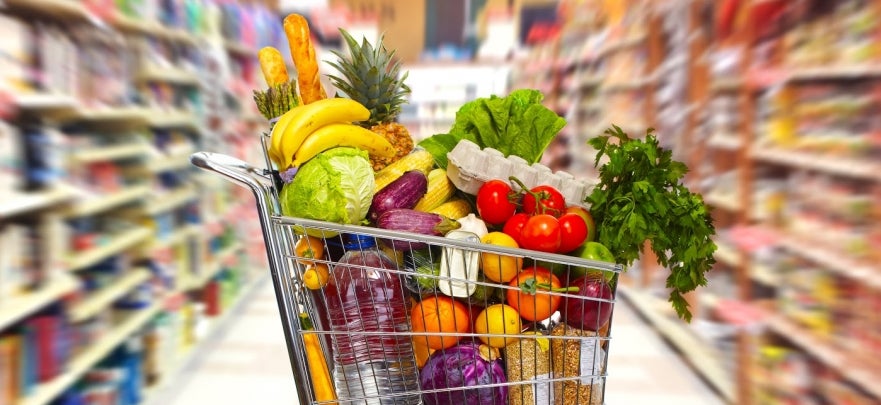10 Tips For Healthy Shopping
When you think about grocery shopping, you often start with every intention of only buying ingredients to make nutritious meals and snacks for the entire week. But somehow after that first step inside the grocery store what ends up in your cart is a far cry from that original healthful vision. Start shopping better today with these tips and leave the store with the most wholesome food possible.
Tips to help you make healthy food choices while shopping:
-
Plan ahead and make a list: Before you even step out the door to go grocery shopping, plan your meals for the week and create your shopping list from this menu. It will spare you loads of time later because you won’t wander around each isle browsing every package. It will also save you from having to make a quick trip to the store when you need an ingredient. Bonus: By preparing ahead of time you can use coupons, see what’s specials are in the weekly flier and incorporate these items into your weekly menu. Be sure to write down a list of everything you need from that plan. Now the key is stick to the list! Don’t let yourself be sucked into marketing or sales pitches if the items are not on that list!
-
Shop the store’s perimeter: All the of the fresh food items are located on the store’s perimeter; so that’s where you want to be. The processed, unhealthy items are found on the shelves in the middle of the store. So best to avoid those isles altogether to avoid the temptation.
-
Buy foods that don’t have a nutrition facts label: This means whole foods that are what they are, like broccoli, an egg, an apple, etc. There is no list of ingredients because the item is the ingredient!
-
Choose organic or local whenever possible: Organic meat, dairy and produce are more nutritious and have less pesticides, antibiotics and other chemicals. Local farms are a great way to support local farmers and reduce the carbon footprint of shipping.
-
Buy lean cuts of meat: Generally speaking, the less fat on the cut of meat, the healthier for you. Animals store toxins in fat tissue, so best to avoid consuming animal fats and those toxins. If you are unsure which meat is leaner, look for the Heart Foundation tick of approval.
-
Beware of processed meats: Limit your consumption of deli meats, hotdogs, salami, spam, corned beef, bacon, smoked salmon and ham or chicken loaf. These items are usually loaded with sodium and other preservatives like nitrates, nitrates and more. Either go to the deli and get real sliced meat or make your own at home as an alternative.
-
Buy lots of fresh and/or frozen vegetables: Eating healthy means the majority of your plate is made up of whole plant foods. So start adding more colorful vegetables to each meal. Purchasing frozen vegetables is another great option because they are just as healthy, don’t spoil fast and are usually cheaper than fresh.
-
Check the date: Avoid the risk of eating unsafe perishable foods, especially chilled or frozen items. A “use-by” date shows the date by which a product should be consumed, but even before that date if it looks or smells off, do not buy it! You want to avoid bacteria and other foodborne illnesses at all costs!
-
Limit/avoid junk foods (i.e. candy, cookies, protein shakes or energy bars, premade wraps, sandwiches, etc.): Most of these foods are high in sugar, fat, or salt, and low in nutrition. Junk foods also leave you hungry again a few hours after you eat them. Things that come in flashy packaging or are meant to be “fast” food are probably not the most ideal options.
-
Stock the pantry: Bulk buy nutritious meal ingredients. Non-perishable, healthy
foods with long shelf lives include: walnuts, almonds, dried vegetables, beans, legumes and rice. These items make great stables to have in the pantry at all times.






